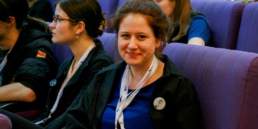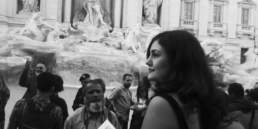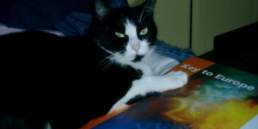Two years in the Comité Directeur: not many people make that. Marco Daniele from AEGEE-Torino has been Network Director since last summer. Now he wants to run again – but this time he prefers to focus on switch to external relations and projects. “Since this year, thematics are again in the middle of the AEGEE interest. What we need now is a better usage of our resources”, Marco pointed out in his candidate interview.
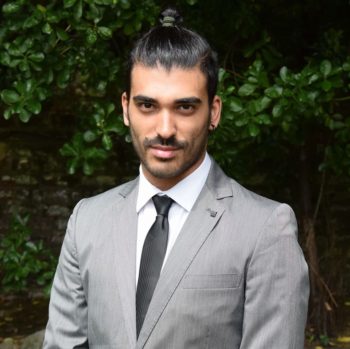 Gunnar Erth: Marco, how would you describe yourself in five keywords?
Gunnar Erth: Marco, how would you describe yourself in five keywords?
Marco Daniele: Logical, creative, ironic, self-confident… uhm, AEGEEan?
You are the only CD member who runs for another term. Why do you want to do another year? During this year I tried to start a process of change management in AEGEE: I clearly saw some of our inconsistencies and realized that in order to fix our organizational issues we need to coordinate better our organizational improvements. Since I started this process with some of my proposals and with the implementations of other soft rules and AEGEE Review, it would be hypocritical to claim the importance of continuity and then refuse to serve our association when it’s needed. Also, one year isn’t enough even to learn everything, and the more time I spend in the house, the more I understand AEGEE, giving me new ideas and energy! Last but not least, I think my previous experience would really help the new team, especially with the so-called Brussels bubble and team management.
You wrote you were “sometimes failing, sometimes achieving great results” this year. Where did you fail? And what were your successes?
Failing is normal when it leads to improvement: for this reason I don’t have strong examples, but I can tell you what I’m more and less proud of. I am very happy about the proposals I am going to present and the amount of research and work me and the people I worked with put in it; and I am proud of how the “30 years of Summer University” project is developing: we started without a lot, and now ideas and an AEGEE-Europe project are flourishing! About things I could have done better: it’s probably the number of Contacts I helped to found until now. Anyway, amazing news related to a new contact are coming and I still have my founding trip, so, who knows! Maybe I will be able to make a success point out of this before the year ends!
You are Network Director, but want to switch to external relations and projects. Why? You are tired of the network?
One year ago I was writing that AEGEE is the Network, the locals are our only strength. I still think the same: I am not scared to call AEGEE-Europe a service provider of the locals and to claim that we do have levels in AEGEE; the local level and the European one, with the first one being higher and in control of the second. Being tired of the Network would mean to be tired of AEGEE. I consider my role as Network Director the biggest honour I had in life, but my contribution wouldn’t be so fruitful anymore: I worked hard to implement some changes, meaning my ideas are already out there. I think a new Network Director would mean fresh ideas, and with me still in the CD we would have two or more strong points of views to make the dialogue even more impactful. Does it mean I am done with the locals? Absolutely not! One of the reasons I want to run as External Relations Director is to enrich the virtuous cycle I am trying to create between AEGEE-Europe and our antennae.
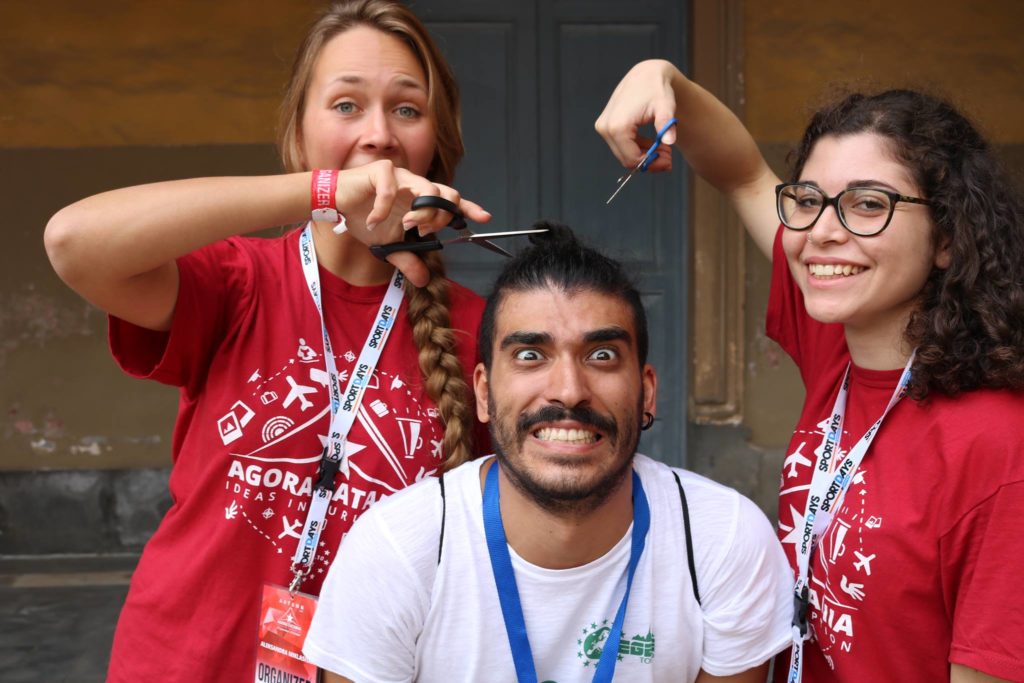
You want to enhance the policy and advocacy work of AEGEE on local level. Can you give examples of local success cases?
A big part of the Network is convinced that policy and advocacy are activities strictly related with what happens in Brussels or in few local particular opportunities, for example when speaking with important decision makers and stakeholders. The reality is that in the moment we exist in a city, that’s already a strong statement of the will and commitment of young people, and therefore it’s a pure act of policy and advocacy. Surviving and flourishing as AEGEE locals is already the biggest part of the work, so why don’t we try to understand together how to actually be impactful on the local level as well? Every time you organize a thematic activity, every time you engage with your antenna in a political debate or discussion, every time you create something together with other NGOs or partners, every time you meet local decision makers and stakeholders to represent the voice of young people, you are already engaging in policy and advocacy activities. We just need the last step, to realize what the locals are already doing and proceed to give them the tools to make the best out of their efforts!
How do you want to establish new Policy and Advocacy trainings, when most existing European training events need to be cancelled due to lack of interest?
I think that the Internal Education reform will create a more organized environment for training events and we are already working with the taskforce to implement soon a calendar of trainings to avoid the problems that we are facing now.
What are branded activities and how can they be used as a Policy and Advocacy tool?
Imagine Branded Activities as completely bottom-up, permanent projects. Through a system inspired by franchising experiences, AEGEE-Europe will provide only a very light framework for local activities, enabling coordination more than directions. Same logos, same names, same PR materials and campaigns, will give locals credibility and identity while still letting them the flexibility of organizing activities tailored-up for their environment. This concept creates natural multipliers, reaches more people in a more impactful way and gather the people’s ideas through simple submissions of results: Europe Cafè, our first pilot consisting in a discussion of the latest European topics in front of a cup of coffee or a beer is a good example. Imagine having 20 locals per month discussing the same topic, under the same brand, and having AEGEE-Europe gathering the results and creating monthly recommendations of what young people think to stakeholders: you would have a great tool to let the grassroots decide which topics they want to engage in and a continuous production of policy positions from all over Europe, and plenty of material to advocate for! In the same moment, we would be able to find partners interested in the precise topic to support the organizing locals, which will be able to jump to action in in any moment of the year! And this is just a start: we can create and add more Branded Activities for every topic the network is interested in!
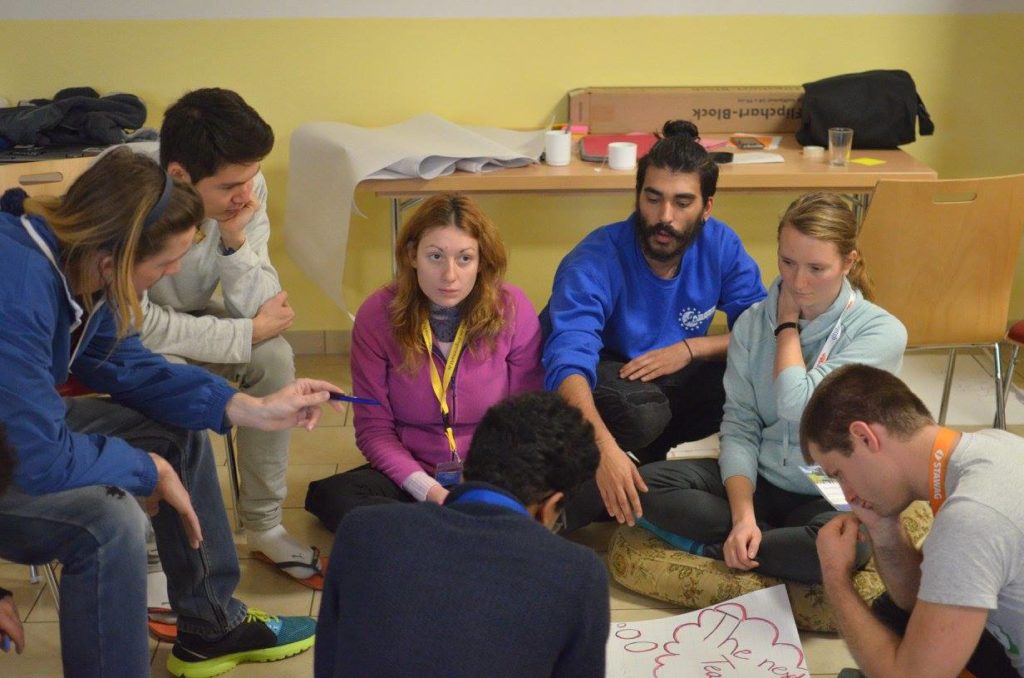
You want to focus also on projects. The number of SUs reached the lowest level since 1991, the number of applications is shrinking. Most SUs have no academic content anymore. How do you want to turn around the wheel?
This year we already started a process of repositioning the identity of the Summer University to let it enter in the new millennium at its full potential. Through 30 years of Summer University and various confrontations with externals, we want to find out what makes the SU the special experience that we all love and to work in that direction for a great promotional campaign. I strongly believe that this project is strictly connected with our successes and with our decreasing numbers: this year we launched the Summer Break pilot, consisting in one-week SUs, following the feedback of the Network. In this way more locals will be able to participate in the project, and the participants who can’t take two weeks off will join as well. After the “30 years of SU” project will be over, we aren’t going to stop! I have a lot of ideas regarding the next 30 years of SU, like implementing a proper recognition of skills system for the SU participants, enhancing European Schools cooperation with Summer University, new concepts and clusters for organizers to select, a Winter University coordination with SUCT, to open a conversation with other associations that organize summer schools to advocate for more attention for this particular kind of events, and more!
International projects of conferences, study trips and trainings were AEGEE’s programmatic backbone from 1995 to 2010. How can AEGEE reach this level of content, coherence and impact again?
Since this year, thematics are again in the middle of the AEGEE interest. What we need now is a better usage of our resources. This year we already proposed a simple reform of the training framework, with a better division of roles and the new RTC format. Still, I’m convinced that moving only one piece of the puzzle isn’t helpful, but changes need to be coordinated in a coherent way. With AEGEE Review we are discussing these topics and it’s in my priorities to propose planning improvements, finalising the AEGEE next battle idea we worked on this year into the creation of a flagship thematic with a consequent flagship project, to give back the ownership of our contents to the locals and to help AEGEE-Europe to react faster and more efficiently to the important challenges Europe faces.
You want to enhance AEGEE’s responsiveness to the current events in Europe. Can you give three examples how this could work in practice?
First, Branded Activities are there to give us at the same time coordination and flexibility: if something that deserves our attention happens in Europe, locals will naturally select the topic as their focus for the incoming edition and we will easily gather recommendations and useful material to react fast. Second, selecting a flagship theme of the year, we will be able to focus on more precise and updated particular topics, easily intersectable with our Focus Areas; suddenly, we could have a topic for the EPM and a flagship project out of it! Third, building up policy and advocacy capabilities in our Network and connecting it with our presence in Brussels, we can create more and more material to work with in the field, and being more trustable because of our strong representation locally. It’s my intention to work in this direction and to collect all the instances our members have when it comes to represent their voices in Europe.

You want to have regular meetings of the European middle level of thematic bodies, commissions and project managers. Isn’t that just creating more administration? Where is the benefit for AEGEE?
The answer is pretty easy: if done correctly, it actually decreases the bureaucracy. The added value for AEGEE would actually be incredibly relevant: after almost one year in the house, I realized how the biggest challenge and mistake we face in AEGEE is the lack of coordination and consistency when it comes to follow our plans from our vision to its actual yearly implementations. With this new HR approach I have in mind, we would be able to coordinate the coordinators of our bodies, deciding together what are the relevant steps to take every year, transforming the Activity Plan of CD in a development plan for the association, creating an organizational Action Agenda made of objectives derived from our actual situation and analysis of the needs, constant check on the results that we are getting and so on. I want to implement this through soft rules, asking everyone to coordinate and to acquire ownership on the AEGEE future!
Questions from the network
Question 1: Based what happened within CD55, how would you prevent resignations within the team?
I don’t think we need any particular strategy to avoid resignations: but I do think that a balanced portfolio distribution and a result-oriented approach toward the work from the first day, connected with a common vision would help a lot to avoid similar cases.
Question 2: As a Network Director you proposed an antenna criteria reform. Do you think it can be beneficial and why?
After working almost one year with the antenna criteria, I do not only think my reform would be beneficial, but actually necessary. More than a reform, it’s a clarification of what is a criterion and what is a health indicator or a simple document set. It decreases bureaucracy from all sides, let everyone focus more on what is relevant – such as organizing European Events. It stops this culture of non-exceptional exceptions, deals with the reality of the Network and let us build tailored-up growth strategies per area and per local. Another interesting point is: we always considered what I call health indicators as necessary criteria to be fulfilled; so why do we ask only our stronger locals to fulfill them while the locals that we consider weaker ones aren’t supposed to fulfill all of them? With my proposal I’m inverting this process of feeding medicines to what we consider healthy people, and still leaving to Contact Antennae the real chance to receive support in their development, instead of having to blindly fulfill criteria maybe not perfectly focused on their own situation.
You can read Marco’s full candidature here.
Check also the interviews with the other CD candidates:
- Monika Mojak for Secretary General
- Luca Bisigini for Financial Director
- Oguzhan Ayhan for Financial Director
- Alejandra Piot for Comité Directeur
- Evrim Emiroğlu for Comité Directeur
- Elena Efremova for Comité Directeur
- Müge Güner for Comité Directeur

